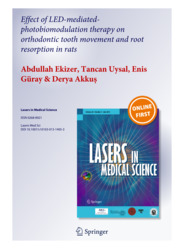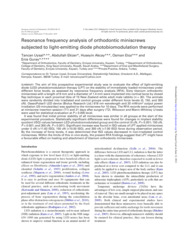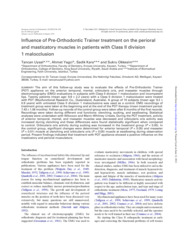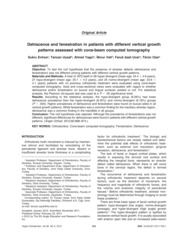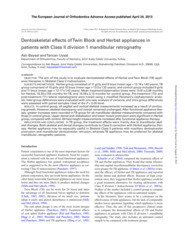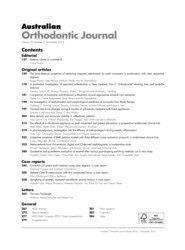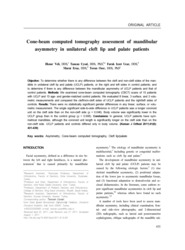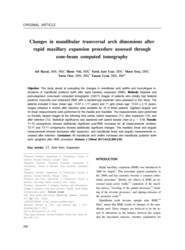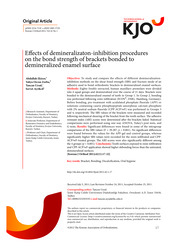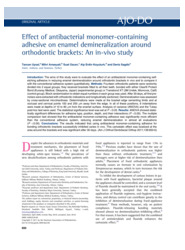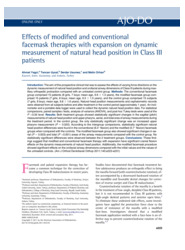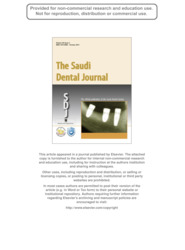Filtreler
Filtreler
Bulunan: 39 Adet 0.000 snKoleksiyon [4]
İlgili Araştırmacılar [8]
Ambargo Durumu [1]
Tam Metin [1]
Veritabanı [4]
Eser Sahibi [7]
Tür [1]
Yayıncı [14]
- The Korean Association of Orthodontists 7
- The E. H. Angle Education and Research Foundation 6
- Türkiye Klinikleri 6
- American Journal of Orthodontics and Dentofacial Orthopedics 4
- European Orthodontic Society 4
- Kare Publishing 2
- Selçuk Üniversitesi Diş Hekimliği Fakültesi 2
- The Saudi Dental Journal 2
- AMERICAN JOURNAL OF ORTHODONTICS AND DENTOFACIAL ORTHOPEDICS 1
- Australian Society of Orthodontists 1
- Hindawi Publishing Corporation 1
- ORTHODONTICS & CRANIOFACIAL RESEARCH 1
- Oxford University Press on behalf of the European Orthodontic Society 1
- Springer 1 Daha fazlası Daha az
Kayıt Giriş Tarihi [14]
Konu Başlıkları [20]
- Cone-beam computed tomography 4
- Mineral trioksit agregat 3
- Mineral trioxide aggregate 3
- Asymmetry 2
- Herbst appliances 2
- Orthodontics 2
- Rapid maxillary expansion 2
- Rats 2
- 3 Dimensional diagnosis and treatment planning 1
- Alveolar width 1
- Antibacterial monomer-containing adhesive 1
- Apeksifikasyon 1
- Apexification 1
- Arch form 1
- Açık apeks 1
- Bonding 1
- Bonding and aligner 1
- Bracket 1
- Brackets 1
- CPP-ACP 1 Daha fazlası Daha az
Dergi Adı [8]
- Journal of Pediatric Dentistry 2
- The Saudi Dental Journal 2
- AMERICAN JOURNAL OF ORTHODONTICS AND DENTOFACIAL ORTHOPEDICS 1
- Australian Orthodontic Journal 1
- European Journal of Orthodontics 1
- International Journal of Dentistry 1
- Lasers in Medical Science 1
- ORTHODONTICS & CRANIOFACIAL RESEARCH 1 Daha fazlası Daha az
 EBRU KÜÇÜKYILMAZ
EBRU KÜÇÜKYILMAZ